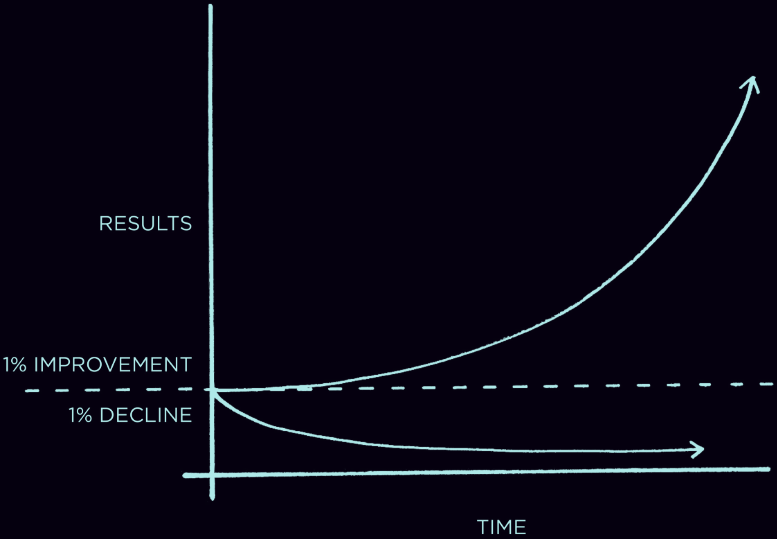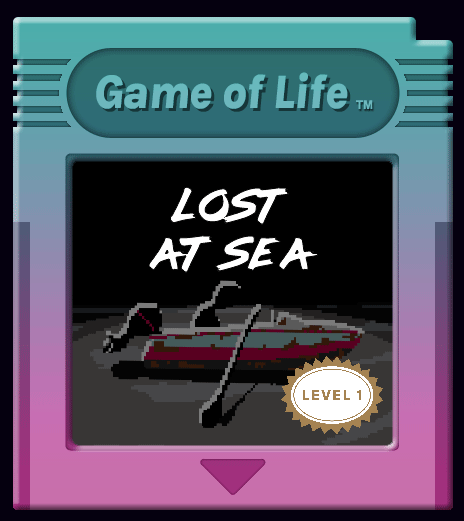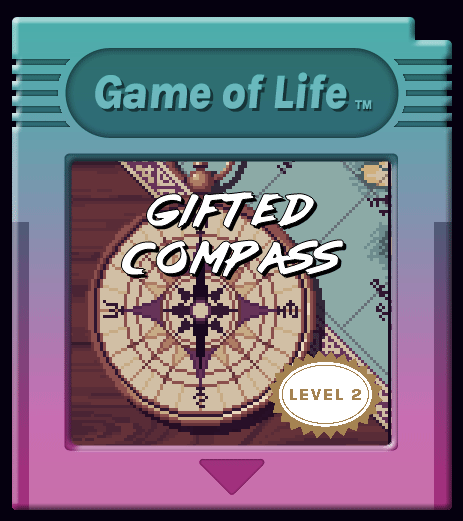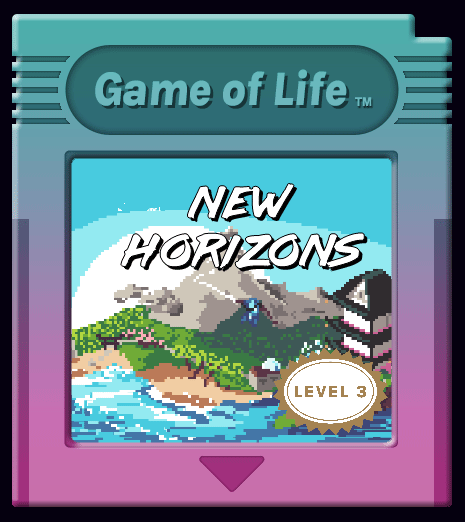Video games push gamers to get better at their game. They continually introduce a more difficult challenge – a stronger final boss, a new game mechanic, or the stress of a stopwatch that’s counting down. The most beloved and acclaimed games such as Elden Ring, God of War and Hades, but also Ratchet & Clank, Super Mario or Loco Roco, all have a solid build-up of challenge that keeps the gamer engaged.
There are obstacles to overcome, battles to win and through skill you advance to the next level (or by asking your friend 🤫)
The goal is progression.
Many have spent thousands of hours in their favorite game. Especially competitive games, where you play against other people, are extremely addictive. The idea that you are playing against a player of flesh-and-blood makes it even more thrilling. Nothing beats a headshot that your opponent never saw coming.
Approach Life like a Game
What if you would treat life the same as a video game?
Wait, I’m not saying that you should pick up an AR-15 and practice your headshots at your nearest high school, calm down you Americans. I’m saying there are similarities between the tests we must face in the virtual and real world.
The challenges that life present look a lot like the ones we find in games. How do you earn enough money to buy the stuff you want? What is the best approach to defeat something that scares us? What should I say to someone to get the information I need? How I can use my skills to help other people?
However in our lives, there was no team of developers laying out a trail of quests for you. You have to create the story yourself and choose which obstacles to climb. That can be quite stressful. Progression is not about a character in the virtual world, but about you, and as such the overall impact is much more significant.
Approaching life like a video game will stimulate us to be more competitive. But the big error that many make is to compare themselves to others. Every life is different, and you can’t just compare yourself without also regarding all the other aspects of that person’s life. Therefore, our enemy is not someone else, but the person we no longer want to be. The challenge comes from within.
Ending up in a ditch is overcomeable in a game – just load a previous save game – but in real life it’s not so easy. Still, you can learn to save your progress and get an overview of your development.
The Importance of Introspection
Introspection means observing your own ideas, thoughts, and feelings. It is a journey inward; a search for who you want to be and what you want in life.
In this fast-paced digital age, with many temptations and an ever-shortening attention span, it is good to take a break now and then. Take time to think about yourself and the future. Sit quietly for a moment and let your thoughts run wild.
It can be very helpful to write down thoughts that cross your mind. An excellent method is journaling. A journal is a personal record of experiences, reflections and thoughts that you keep on a regular basis.
Getting started with journaling is easy. Buy a notebook or download a note-taking app, and jot down the stuff that’s on your mind. To give you some more guidance, I’ve created a template in Notion that you can use to assess multiple aspects of your life. By doing this, your head will become a bit emptier and you’ll have more room to focus on new things.
Think of your notebook as a save game state. It is a temporary record of your thoughts at that moment. Your thoughts are safely stored, so you can let go. If you’d want to relive how you felt at a particular moment, you can read it back.
The more often you write down your thoughts, the more inner peace you will experience. You will notice importance of journaling beyond a better state of mind. It also allows you to work out ideas and refine them at a later time. This way, your collection of thoughts becomes a personal source of inspiration.
1% Improvement Every Day
The effects of your habits multiply over time if you repeat them. Small, continuous improvements can have an impact that almost every person underestimates. That’s the magic of the compound effect.
Improving by 1% percent isn’t particularly notable – sometimes it isn’t even noticeable. But in the long run, the difference that small incremental improvements can make is mind-blowing. A tiny daily commitment leads to huge results on a monthly or yearly basis.
If you can get just 1 percent better each day, you’ll end up with results that are nearly 37 times better after one year. Vice versa, do 1% worse day after day, and after a year there’s almost nothing left (only 3%).
This is an effect that people often underestimate.
Consistency > Blood, Sweat and Tears
Suppose you were to devote 1% of your time awake to something you want to get better at. If you spend 9 hours snuggled up in your bed every night, that would equate to only 9 minutes a day. That sounds doable, right?
You can spend these 9 minutes in all sorts of ways, depending on your goal. Do you want to learn to play an instrument? Pick a new tune to practice on a daily. Are you keen to finish a book? Read a few pages every day. Want to get bigger muscles? Buy a set of dumbbells and cram those 9 minutes with exercises.
Distributing Your Energy Evenly
The key is not only in the repetition, but also in how our endurance works. Step by step, a big climb becomes feasible. A sprint gets you a head start, but consistency and commitment will get you further.
A daily 9-minute workout will leave you less exhausted than doing a 63-minute workout each week. The weekly workout would leave you sore for days, and that doesn’t really make the next session something to look forward to. Also, it can be tricky to schedule an hour-long workout, whereas you can easily squeeze in 9 minutes on any given day.
Actually, we know perfectly well that daily effort beats one big effort. Every child knows the story of the Hare and the Tortoise. It is also better to brush your teeth twice a day for two minutes, rather than for two hours once a month. Otherwise, the tooth fairy will still come by during your forties.
But we often act differently. We go for short-term rewards, are easily distracted and sometimes suffer from shiny object syndrome. We stare blindly at short-term gains and find it hard to delay our gratification.
However, it pays to distribute your energy more evenly. Not only is a daily, smaller load easier on your body and mind, you can also see progress more easily.
“When you look at people who are successful, you will find that they aren’t the people who are motivated, but have consistency in their motivation.”
~ Arsène Wenger
Self-Improvement with FreshSaga
When you first start working on your own personal development, you may not know where to begin.
The thing I aim to do with FreshSaga – the website you’re on – is to help people to get better at the game of life. I create interactive games, inspirational articles and explainer videos that help you become a better version of yourself. Think of FreshSaga as an interactive guidebook that guides you through the different stages of life.
All items are categorized according to their intent:
- Escape Your Identity Crisis
- Find Your Purpose in Life
- Improve Skills You Use Everyday
- Reach Your Full Potential
You can also view the articles by topic. This way you can pick what you need the most at this moment.
The Game of Life
One unique part of FreshSaga is The Game of Life. This interactive story guides you in personal development. Through various exercises, you reflect on the past, present and future, discover your personality type and figure out what your purpose is in life.
By using some of the same mechanics that we find in video games, I believe that self-development can feel more playful and exciting. A story that captures your imagination, poses challenging quests and forces you to make choices in real life. It is a personalized adventure in which you are the main character and each new finding is a small gift to yourself.
Are you ready to approach life like a video game? From now on, reserve a small part of your day to work on your own personal development. Set goals, track your progress and challenge yourself to become the best version of yourself. What is the high score you’re going for? When will you be happy with your achievements in life?
Start playing The Game of Life now and get to know yourself a little better.
You only have one life left.
Start Playing The Game of Life
Level 1: Escape Your Past
You find yourself floating aimlessly in the darkness. But you’ve had enough, time for action! The sky lights up, helping you to reflect on your past and present.
Level 2: Discover Your Personality Type
Level 3: Visualize Your Future
Your vision has been clouded for too long. Pick a new destination for your journey and set sail to your desired future!







